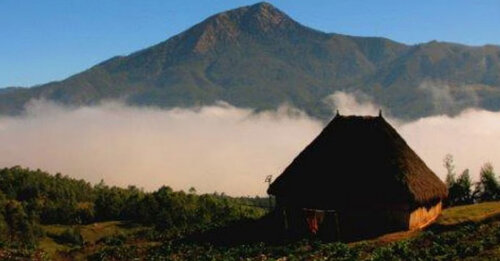Best International Lawyers in Papua New Guinea
Share your needs with us, get contacted by law firms.
Free. Takes 2 min.
Or refine your search by selecting a city:
List of the best lawyers in Papua New Guinea
About International Law in Papua New Guinea
International law in Papua New Guinea (PNG) encompasses the rules, agreements, and treaties that apply to how countries interact with each other. As a member of the international community, PNG is involved in trade agreements, environmental conservation efforts, and adherence to human rights standards. International law ensures that PNG retains its sovereignty while engaging in global relations, promoting peace, security, justice, and cooperation among nations.
Why You May Need a Lawyer
Individuals and organizations may seek legal assistance for various reasons related to international law in PNG. Common situations include dealing with international business transactions, understanding immigration laws, resolving international disputes, navigating human rights claims, engaging with trade agreements, and ensuring compliance with environmental treaties. A lawyer specializing in international law can provide essential guidance in these complex matters, ensuring that rights and interests are aptly protected.
Local Laws Overview
Papua New Guinea's legal framework incorporates both domestic statutes and international treaties. Key aspects of local laws that are relevant to international law include:
- Trade and Commerce: Regulations governing international business, foreign investment, and export-import activities.
- Environment: Laws aligning with international environmental agreements, focusing on biodiversity and sustainability.
- Immigration: Policies regarding visas, work permits, and the status of international nationals.
- Human Rights: Legislation supporting human rights in accordance with international conventions.
- Maritime Law: Rules related to territorial waters, fishing rights, and maritime security.
Frequently Asked Questions
What treaties has Papua New Guinea ratified?
Papua New Guinea has ratified numerous international treaties, including those related to climate change, human rights, trade, and global security.
How does PNG handle international trade disputes?
Trade disputes are generally managed through arbitration or mediation, often involving legal representatives to navigate applicable trade agreements and local laws.
What are the visa requirements for visiting PNG?
Visa requirements vary based on nationality and purpose of visit. It's important to consult PNG's immigration authority or seek legal advice for specific cases.
How can international businesses register in PNG?
Businesses must comply with local regulations, which may involve registration with the Investment Promotion Authority and adhering to international trade laws.
Does PNG recognize foreign court decisions?
The recognition of foreign judgments depends on reciprocal agreements and compatibility with PNG's legal principles.
How can someone resolve a human rights violation complaint?
Human rights complaints can be lodged with local authorities or international bodies, with legal counsel guiding the process to ensure proper protocol is followed.
What environmental responsibilities do international companies have in PNG?
International companies must comply with PNG's environmental regulations, which are influenced by international treaties and focus on sustainable practices.
Are there any restrictions on foreign property ownership?
Foreign nationals face certain restrictions on land ownership and usage, typically requiring partnerships with local entities or specific government permissions.
How does PNG engage with international maritime laws?
PNG abides by international maritime conventions governing issues such as territorial waters, fishing rights, and navigation practices.
What should I do if involved in an international legal dispute in PNG?
It's imperative to consult with a qualified international lawyer to explore legal options, understand jurisdictional issues, and develop a strategic approach to resolution.
Additional Resources
For further information and assistance regarding international law in PNG, consider reaching out to the following:
- Department of Foreign Affairs and Trade: Offers guidance on international agreements and diplomatic relations.
- Investment Promotion Authority: Provides resources for international business operations in PNG.
- Office of Climate Change and Development: Supports matters related to environment and sustainability compliant with international standards.
- Human Rights Commission: Assists with issues related to human rights and international conventions.
- PNG Immigration and Citizenship Service Authority: Provides information on visas, residency, and immigration policies.
Next Steps
If you require legal assistance in the realm of international law in Papua New Guinea, it is crucial to:
- Identify the specific international legal issue or area of concern.
- Gather relevant documentation and information regarding your case.
- Consult with a specialized international lawyer or legal firm in PNG to discuss options and strategies.
- Consider reaching out to relevant governmental bodies or organizations for additional support and information.
- Review your situation in the context of both local laws and applicable international treaties or conventions.
Lawzana helps you find the best lawyers and law firms in Papua New Guinea through a curated and pre-screened list of qualified legal professionals. Our platform offers rankings and detailed profiles of attorneys and law firms, allowing you to compare based on practice areas, including International, experience, and client feedback.
Each profile includes a description of the firm's areas of practice, client reviews, team members and partners, year of establishment, spoken languages, office locations, contact information, social media presence, and any published articles or resources. Most firms on our platform speak English and are experienced in both local and international legal matters.
Get a quote from top-rated law firms in Papua New Guinea — quickly, securely, and without unnecessary hassle.
Disclaimer:
The information provided on this page is for general informational purposes only and does not constitute legal advice. While we strive to ensure the accuracy and relevance of the content, legal information may change over time, and interpretations of the law can vary. You should always consult with a qualified legal professional for advice specific to your situation.
We disclaim all liability for actions taken or not taken based on the content of this page. If you believe any information is incorrect or outdated, please contact us, and we will review and update it where appropriate.
Browse international law firms by city in Papua New Guinea
Refine your search by selecting a city.















